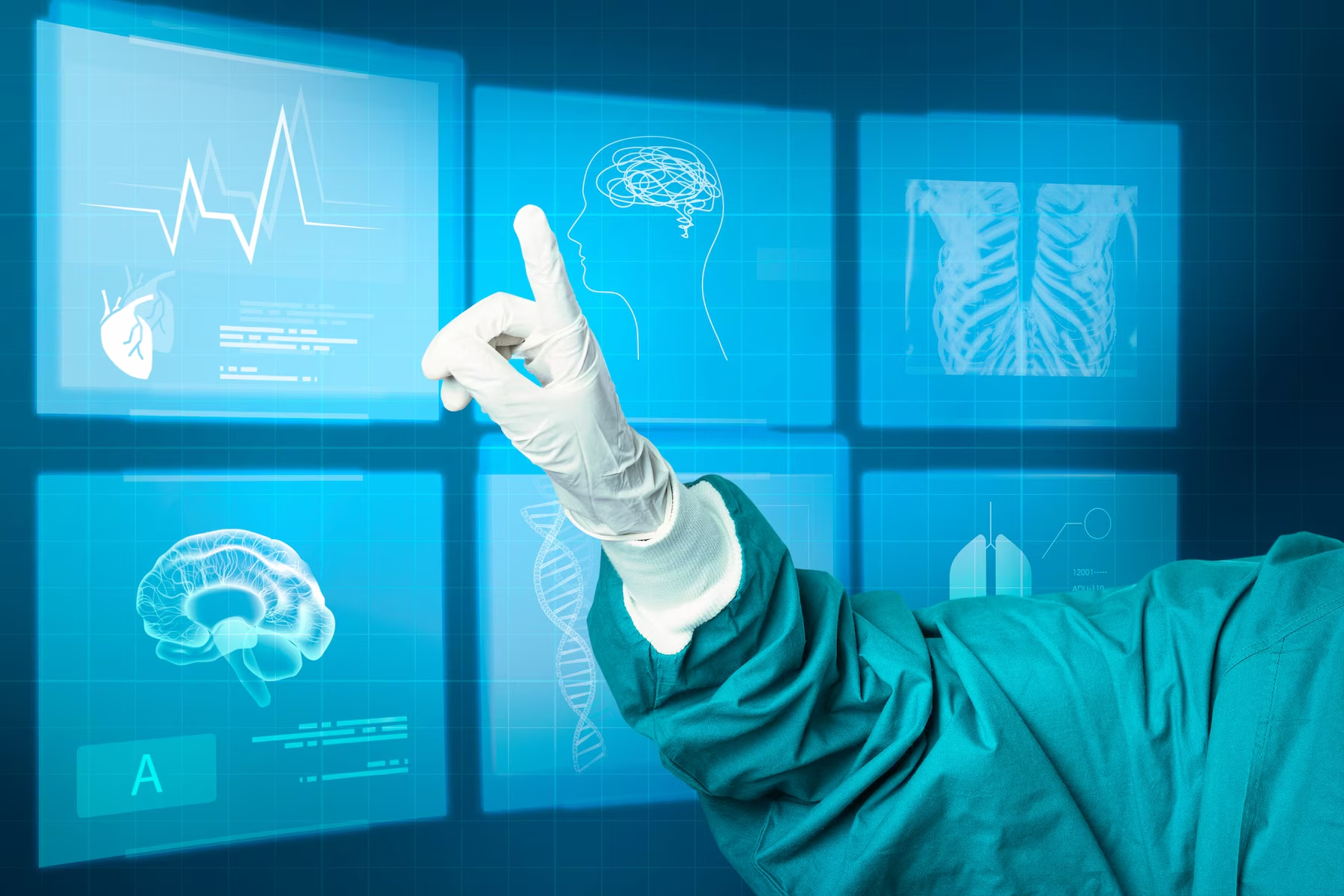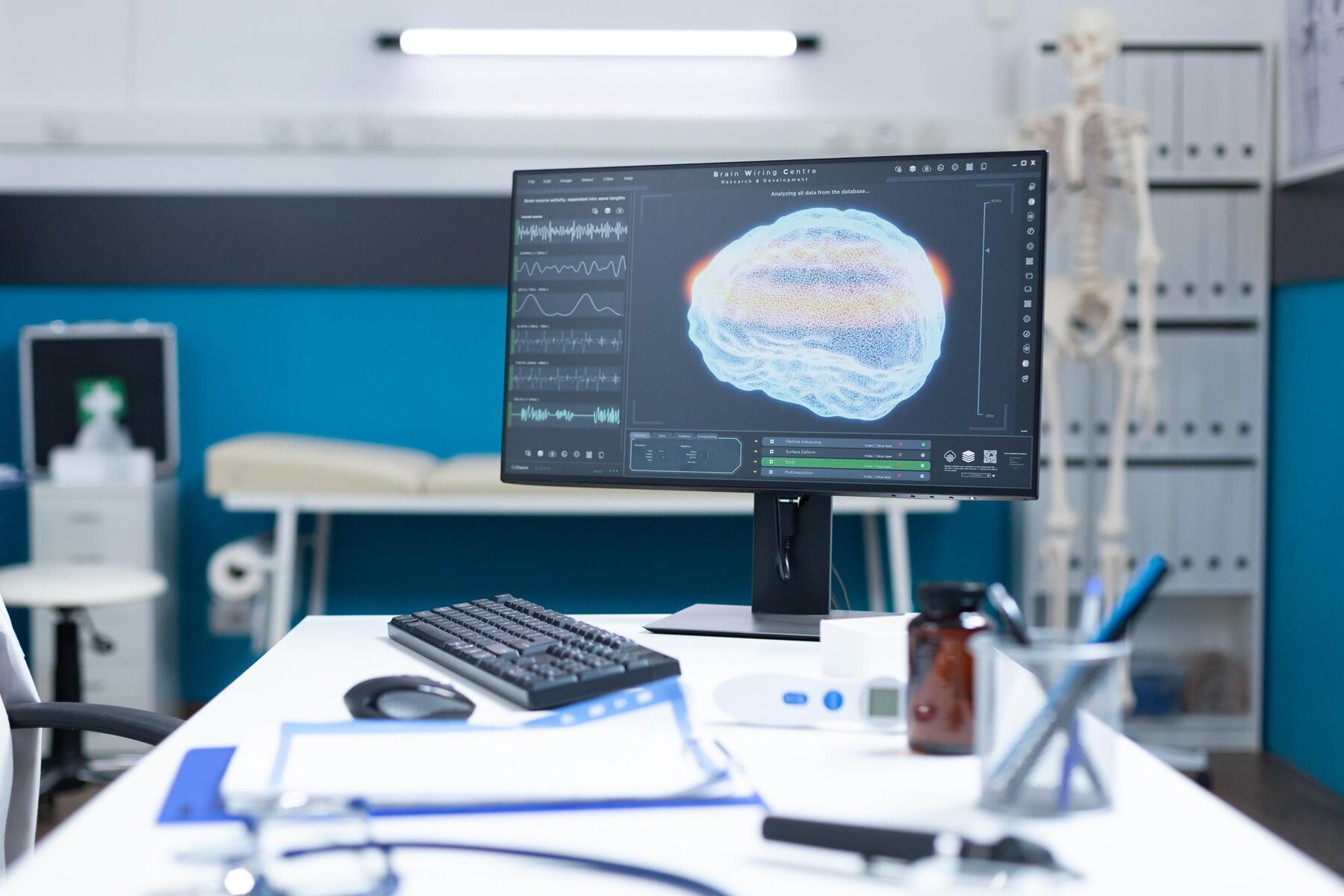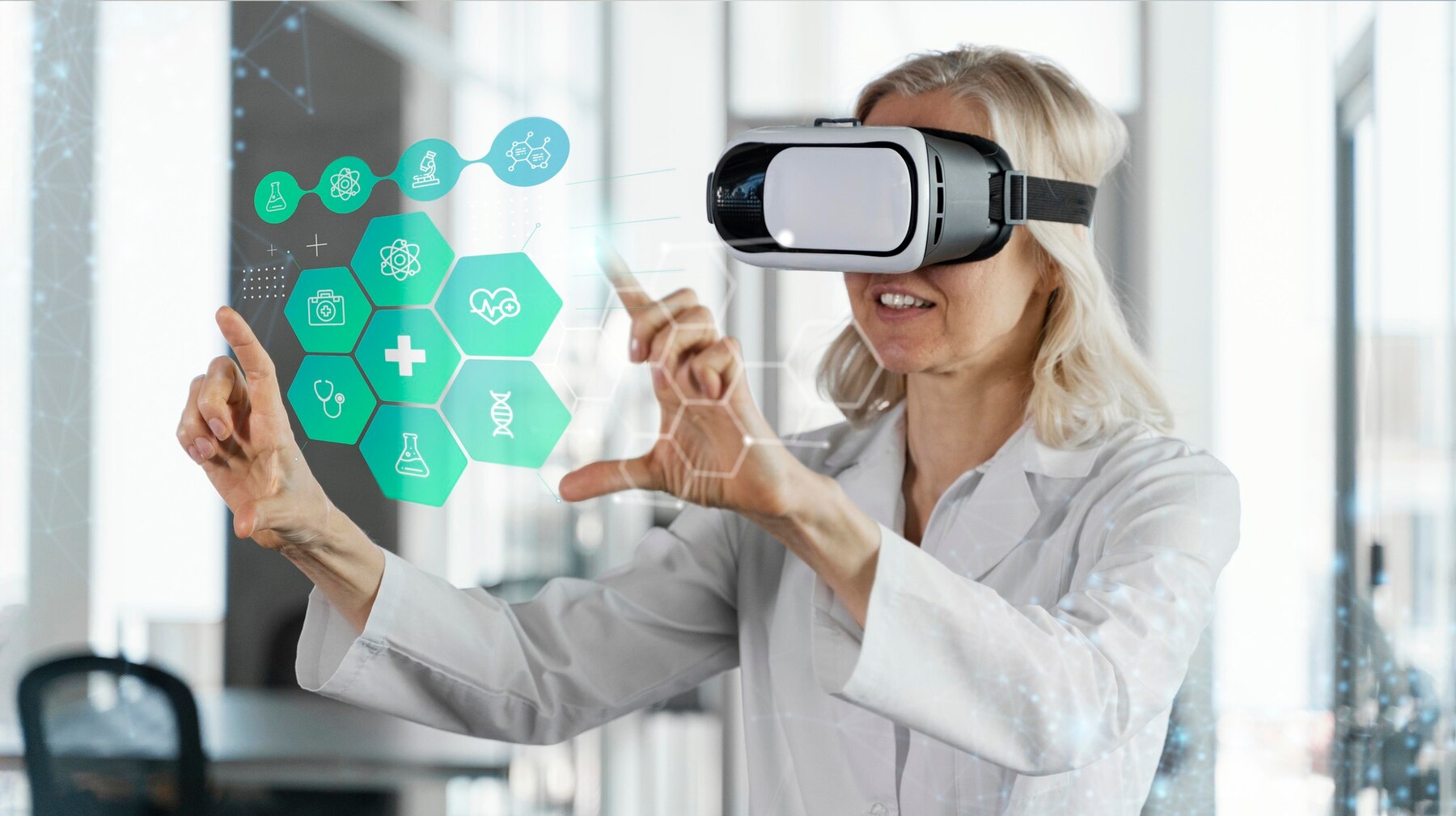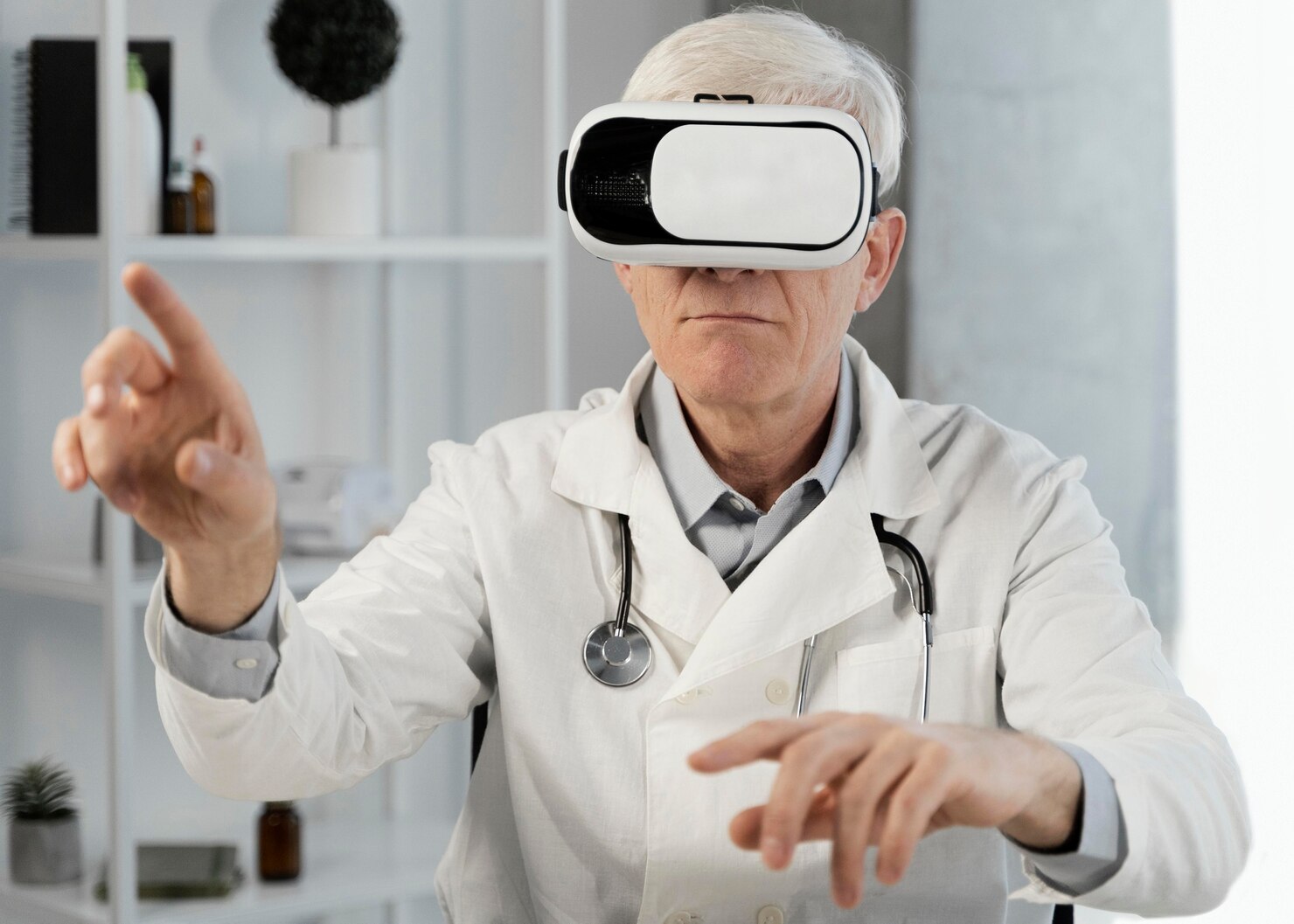
How AI is Revolutionising Healthcare
AI is changing healthcare. It improves patient care, diagnostics, and treatment methods. In the last ten years, medical AI has made significant strides. It now helps doctors make faster and more accurate diagnoses. Treatments are more personalised, leading to better patient outcomes. AI-driven systems help doctors make better decisions. They also optimise hospital operations and predict potential disease outbreaks.
AI diagnostics help machine learning models analyse medical images. They can spot issues in test results and predict when a patient may worsen, even before symptoms appear.
AI is key in:
- Robotic surgeries
- Drug discovery
- Virtual health assistants
- Remote patient monitoring
The healthcare industry is embracing artificial intelligence. The benefits are enormous, but the challenges are significant too.
This article will examine how AI affects healthcare, cover the newest medical AI applications, and discuss the future of AI diagnostics. These tools aim to improve healthcare outcomes worldwide.

AI-Powered Diagnostics: Detecting Diseases Early
Faster & More Accurate AI Diagnostics
One of the most significant benefits of AI in healthcare is its ability to detect diseases early. AI diagnostic tools are improving how we detect illnesses. They help find cancers, heart diseases, and brain disorders more accurately.
- AI in radiology: AI-driven software can more precisely analyse X-rays, MRIs, and CT scans than human radiologists.
- AI in pathology: Machine learning finds cancer cells in biopsy samples better than old methods.
- AI diagnostics for heart disease: AI can quickly analyse ECG patterns to find problems, often faster than doctors.
Case Study: AI in Cancer Detection
A study from Google Health showed that AI diagnostics beat human radiologists in finding breast cancer by 11.5%. This led to fewer false negatives and better early detection rates. Medical AI can boost survival rates by spotting diseases sooner than ever.
AI in Drug Discovery: Speeding Up New Treatments
How AI is Transforming Drug Research
The traditional drug discovery process can take over 10 years and cost billions of pounds. However, AI in healthcare drastically reduces the time and expense of developing new treatments.
- AI-driven drug research: AI models can analyse thousands of chemical compounds in just weeks, helping to find potential drug candidates much faster.
- AI simulations: They can predict how new drugs work in the human body. They help scientists understand drug interactions before actual trials start.
- Personalised medicine: AI tailors drug formulas based on a person’s genes, lifestyle, and health history.
Case Study: AI in COVID-19 Drug Development
During the COVID-19 pandemic, AI helped scientists find current drugs for treating the virus. AI-driven research sped up vaccine development, highlighting AI’s role in drug discovery.

AI in Robotic Surgeries: Enhancing Precision
The Rise of AI-Assisted Surgery
AI-powered robots are changing surgeries. They improve precision, reduce human error, and speed up patient recovery. Medical AI tools, like the da Vinci Surgical System, help surgeons with precise, delicate procedures.
- Minimally invasive surgery: AI-assisted robotic arms allow smaller incisions, reducing recovery time.
- AI-powered imaging during surgery: Real-time AI analysis helps surgeons navigate complex procedures.
- Remote robotic surgery: Surgeons can perform operations remotely using AI-driven robotic tools.
Case Study: AI in Neurosurgery
Neurosurgeons at Johns Hopkins University used an AI robotic system for spinal surgery. They achieved 98% accuracy. This shows how AI can shape the future of robotic surgeries.
Virtual Health Assistants: AI for Patient Support
AI Chatbots & Virtual Nurses
AI-driven virtual health assistants are changing patient engagement. They offer 24/7 medical support, answer questions, and remind patients to take their medications.
- AI chatbotsfor mental health: Apps like Woebot offer AI-based therapy for those seeking help.
- AI-driven symptom checkers: Platforms like Babylon Health analyse symptoms and recommend appropriate care.
- AI-powered telemedicine: Virtual consultations help doctors reach more patients remotely.
Case Study: AI Chatbots in Mental Health Support
AI mental health assistants can cut depression symptoms by 30%. They offer quick support and tailor therapy plans to each user.
AI in Remote Patient Monitoring & Wearable Technology
How AI is Enabling Remote Healthcare
AI-powered smartwatches and medical sensors can:
- Detect irregular heartbeats
- Track glucose levels
- Monitor oxygen saturation
- AI in cardiac monitoring: Wearables like the Apple Watch use AI to detect atrial fibrillation.
- AI-powered diabetes management: Devices track blood sugar levels and adjust insulin delivery.
- Remote monitoring after surgery: AI alerts doctors to issues before symptoms worsen.
Case Study: AI in Heart Disease Prevention
AI-powered ECG analysis helps doctors find heart disease in patients without symptoms, reducing fatal heart attacks by 40%.
Ethical Concerns & Challenges of AI in Healthcare
Key AI Challenges in Medicine
Despite its benefits, AI in healthcare also presents challenges:
- Bias in AI algorithms: AI models trained on biased data can lead to inaccurate medical decisions.
- Data privacy concerns: AI systems handle sensitive medical records, raising security concerns.
- Lack of AI regulation: Many countries still lack strict guidelines for medical AI applications.
- High costs of AI adoption: Implementing AI-driven solutions requires significant investment.
Regulatory Developments
Governments are tackling these concerns by creating new AI rules. For example, the UK has its National AI Strategy, and the EU has the Artificial Intelligence Act. These measures aim to ensure AI is used ethically in medicine.
The Future of AI in Healthcare
Predictions for the Next Decade
The future of AI in healthcare is promising, with new advancements expected in the coming years:
- AI-powered personalised medicine: Treatments tailored to an individual’s genetic profile.
- AI-driven robotic nurses: Automating routine patient care tasks.
- Fully autonomous AI diagnostics: AI systems independently diagnose diseases.
- AI-powered smart hospitals: AI managing entire hospital operations for efficiency.
By 2030, the AI healthcare market is projected to reach £150 billion, highlighting its growing impact.

The Future of Healthcare: Embracing AI for Innovation and Efficiency
AI is playing a more significant role in healthcare. It introduces new tools like AI diagnostics, robotic surgeries, and drug discovery. It also features virtual health assistants and remote patient monitoring. AI improves patient care, cuts costs, and helps find diseases early. But, ethical issues and rules must change to ensure AI is used responsibly.
Medical AI applications will transform the way we diagnose, treat, and manage health conditions in the next decade. AI is advancing fast. Healthcare professionals and policymakers need to team up. They must use AI’s potential and tackle its challenges.
What are your thoughts on AI’s role in healthcare? Share your insights in the comments below!


